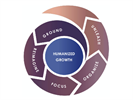Paul Holmes 01 Jul 2017 // 5:30PM GMT

A couple of weeks ago, we reported on a study from the University of Southern California Annenberg School’s Center for PR, which found that 80% of PR professionals responding to the survey think the current administration’s spokespeople distort the truth, while 64% believe they purposefully lie.
The survey’s methodology attracted criticism this week from Mary Beth West, the owner of a PR firm in Alcoa, Tenn., who penned an op-ed for The Wall Street Journal suggesting that the use of a “convenience sample” (a survey group not necessarily representative of the population) called the survey into question.
Convenience sampling is not perhaps the most accurate measure of opinion within a population, but it is a recognized research approach, the Center for PR was transparent about its methodology, and the sample size of 900 is certainly substantial.
And the results seemed intuitively right: if anything, the fact that 20% of PR professionals are not prepared to call out Sean Spicer and others for their repeated dissembling is the most troubling aspect of the survey.
In any case, the two weeks since the survey have delivered encouraging news that PR professionals are not alone in their scathing take on the Trump administration.
First, attendees at the Yale CEO Summit were asked to grade President Trump’s first 130 days in office. A staggering 50% of the CEOs, business execs, government officials and academics surveyed gave Trump an "F" while an additional 21% gave the president’s performance a "D" so far. Just 1% of the 125 leaders polled graded the first 130 days an "A."
"This was not a granola-eating crowd of Democrat entrepreneurs,” said Jeffrey Sonnenfeld, an expert on leadership and the Yale School of Management professor who led the Summit. “It's a cross-section of the business community, including some who are quite pro-Trump."
Then CNBC invited its Global CFO Panel to describe Trump’s leadership style in one word during as part of a quarterly survey. Chaotic was the most common choice (four CFOs) while erratic, reckless, and unpredictable each got two votes. Among the other descriptions: arrogant, authoritarian, clueless, confusing, divisive, incompetent, narcissistic, obnoxious, self-absorbed and “there are no words.”
The only positive description: one CFO said Trump’s leadership was “business-style,” which raises the question, what hellish business does that individual work for?
The bottom line: CEOs question Trump’s leadership skills; CFOs question his management ability. It’s not exactly a surprise that PR people question his communications strategy.
On a slightly different note, we questioned whether the Trump administration was squandering America’s “soft power” by aligning the US with rogue nations like Syria in repudiating the Paris agreement, or refusing to reaffirm America’s commitment to NATO’s mission of mutual protection, or expressing a seeming preference for Russian authoritarianism over European democracy.
This week brought fresh evidence of the way the new administration is impacting views of America around the world. A new Pew survey of 37 countries found that just 22% have confidence in Trump to do the right thing when it comes to international affairs—compared to 64% who had confidence in President Obama in the final years of his presidency.
Across the 37 nations polled, Trump gets higher marks than Obama in only two countries: Russia and Israel.


































.jpg)

















